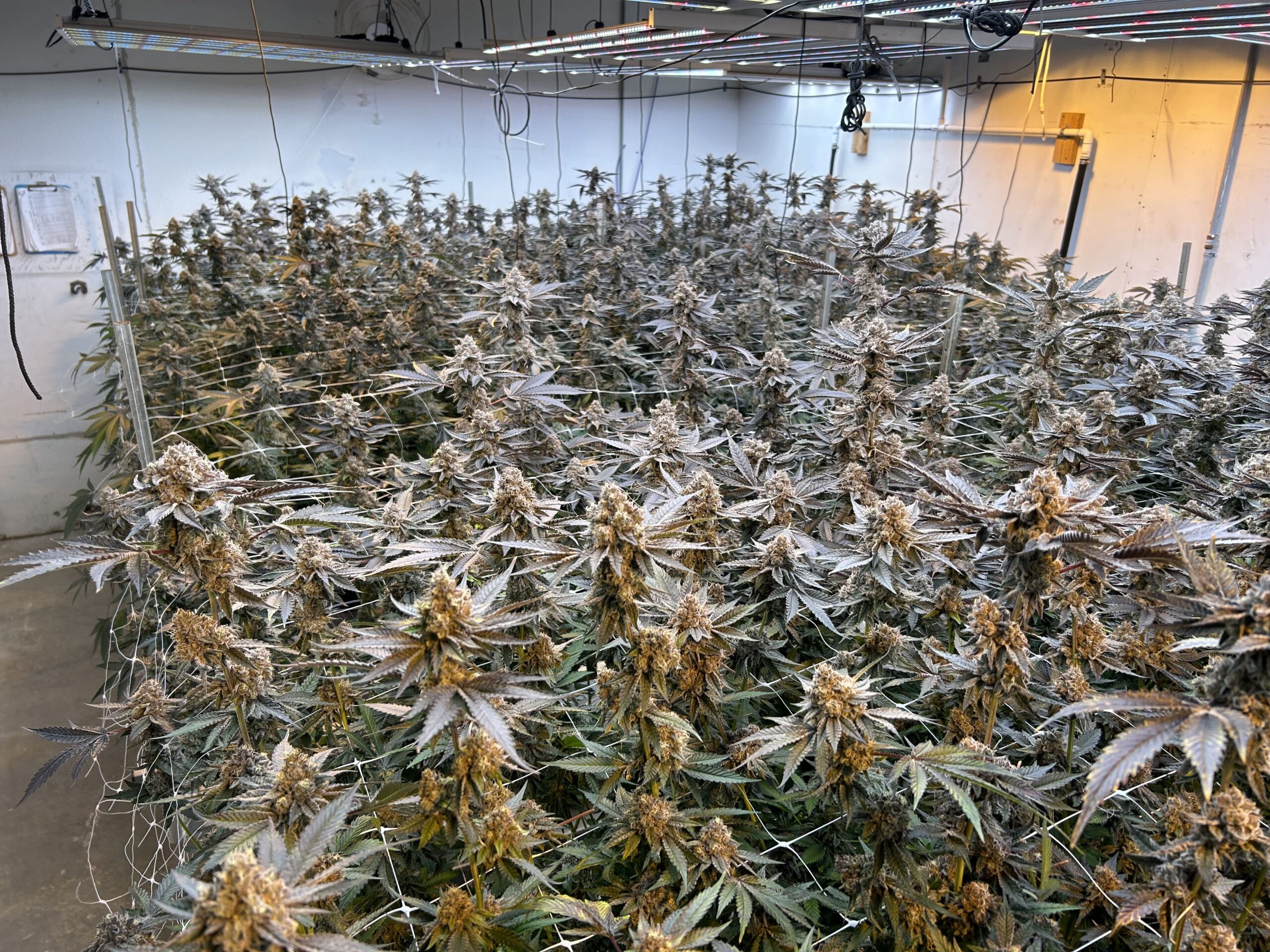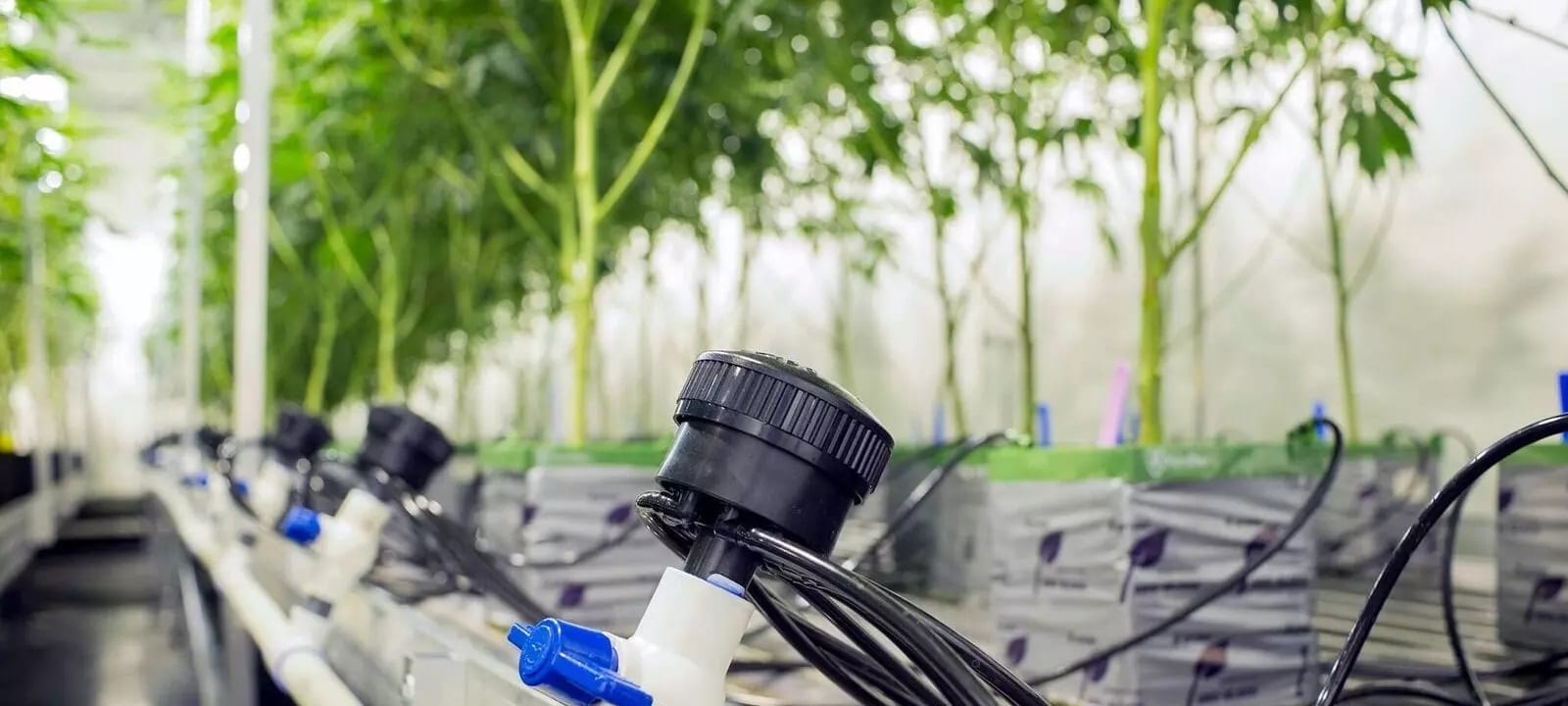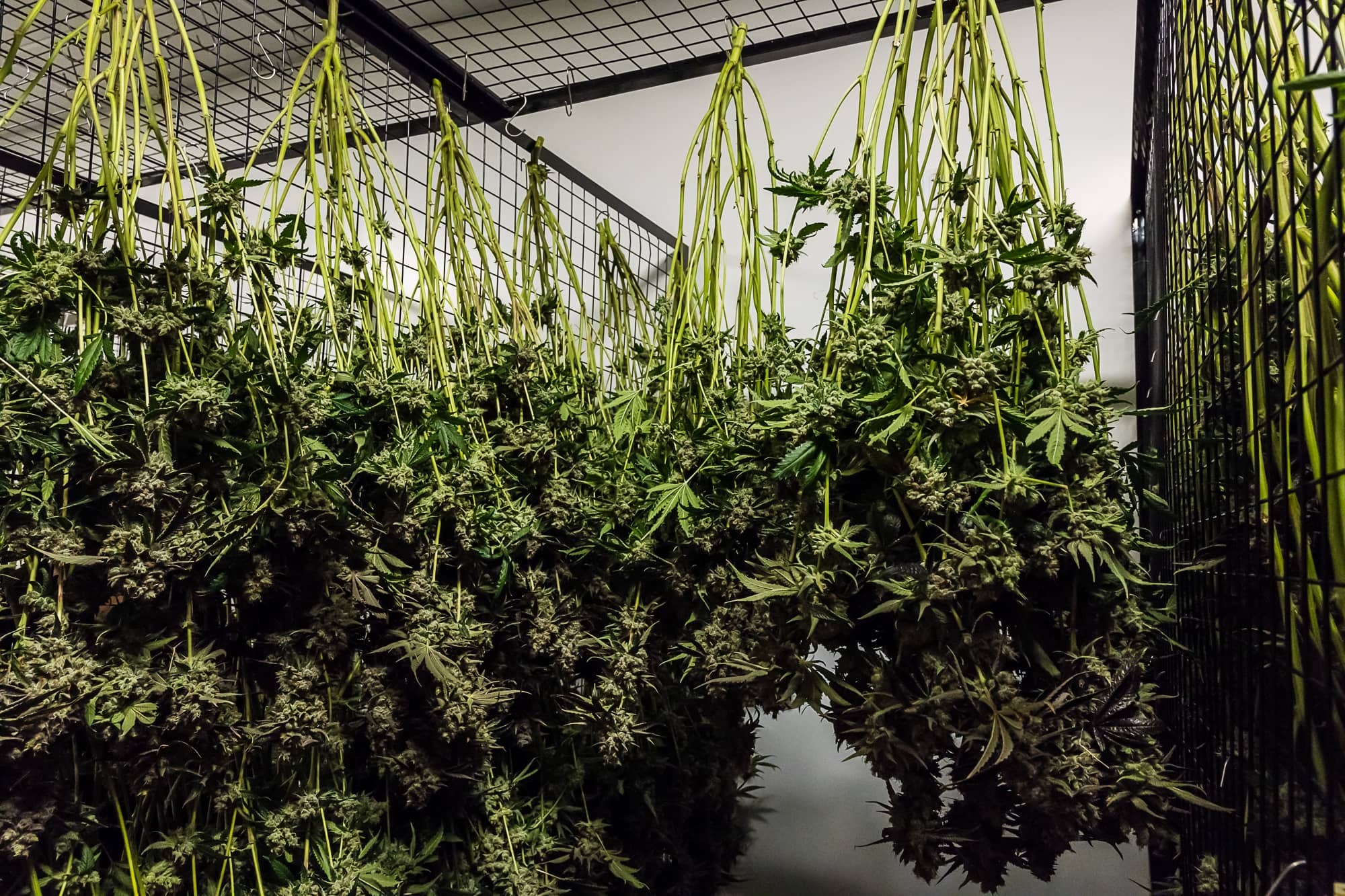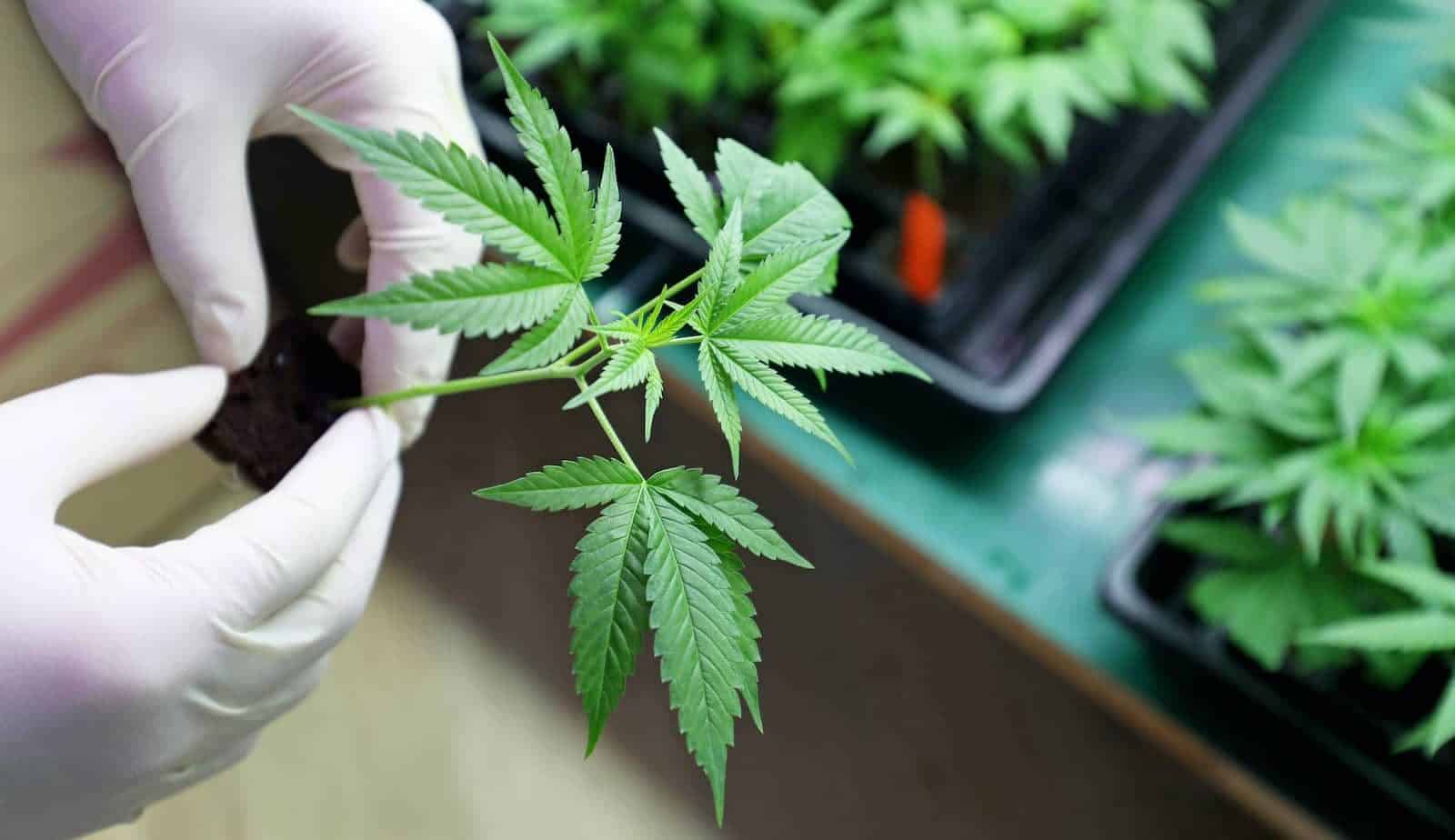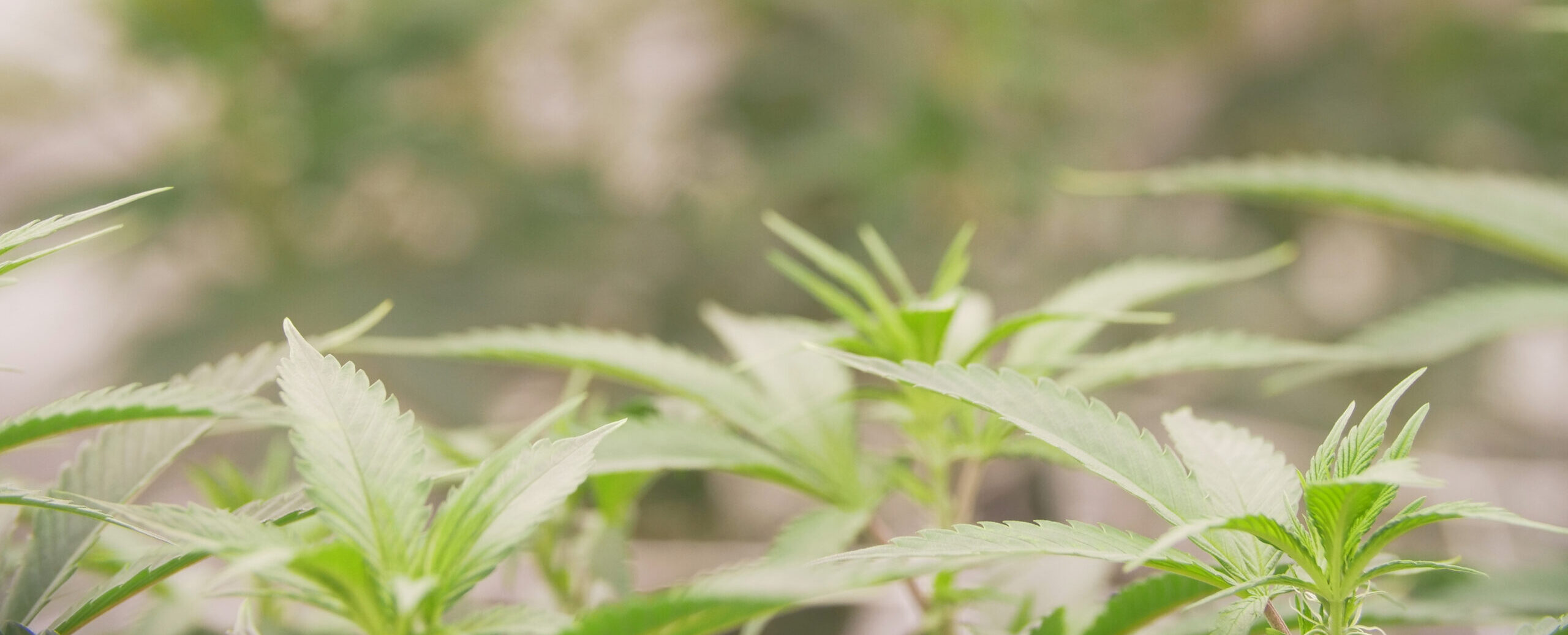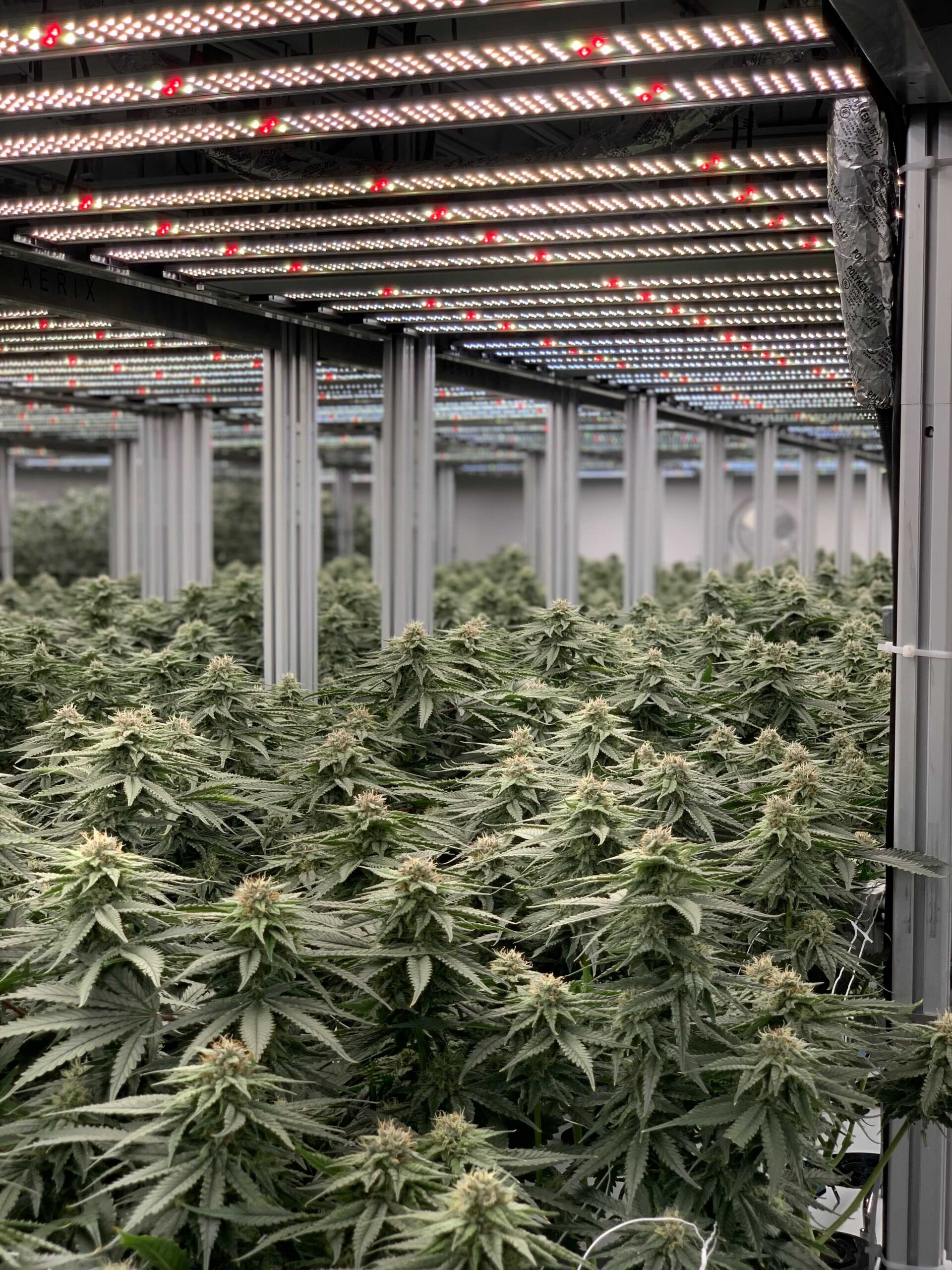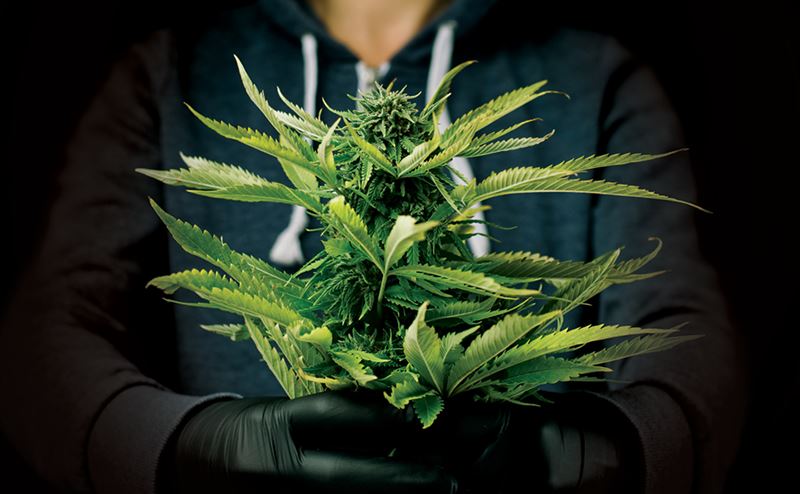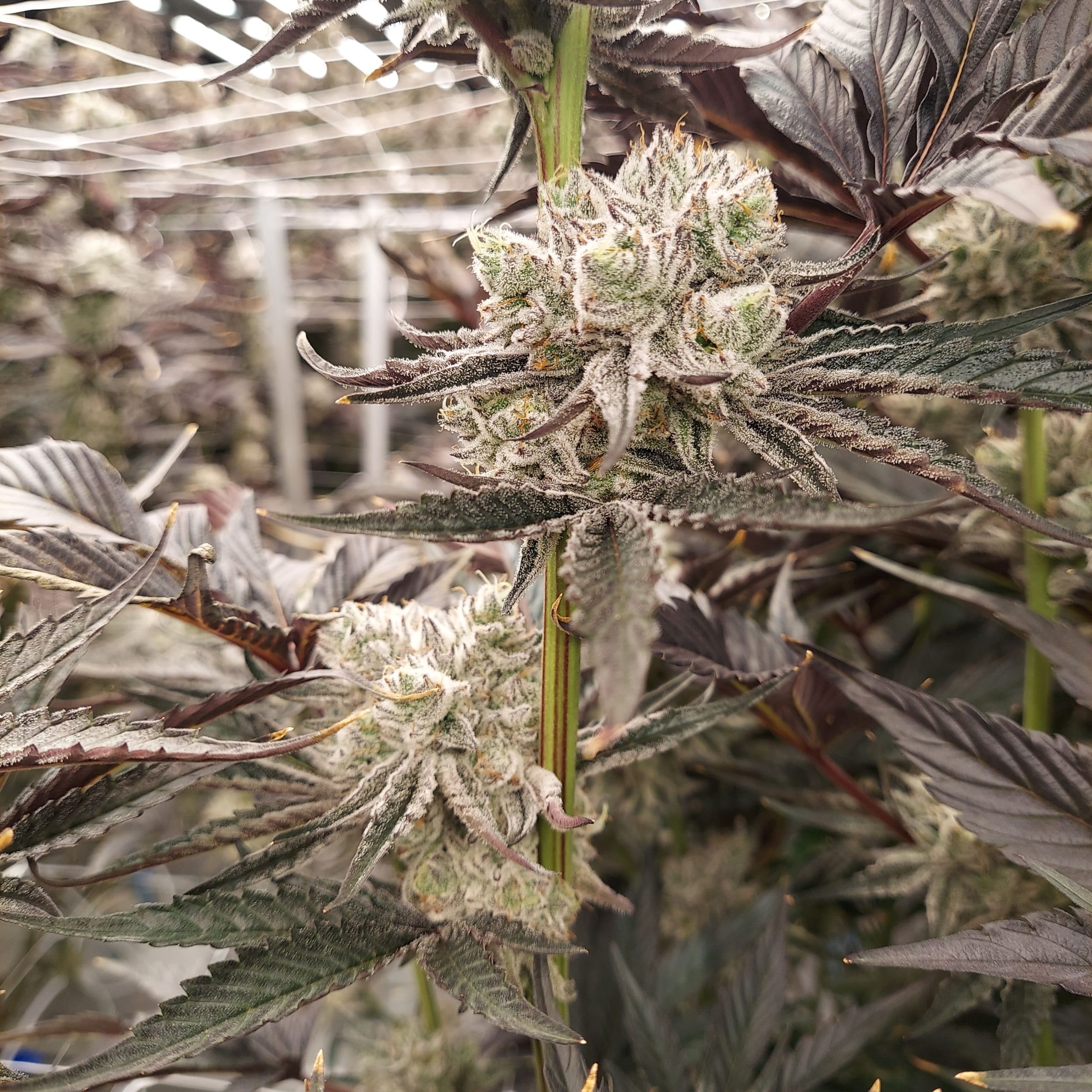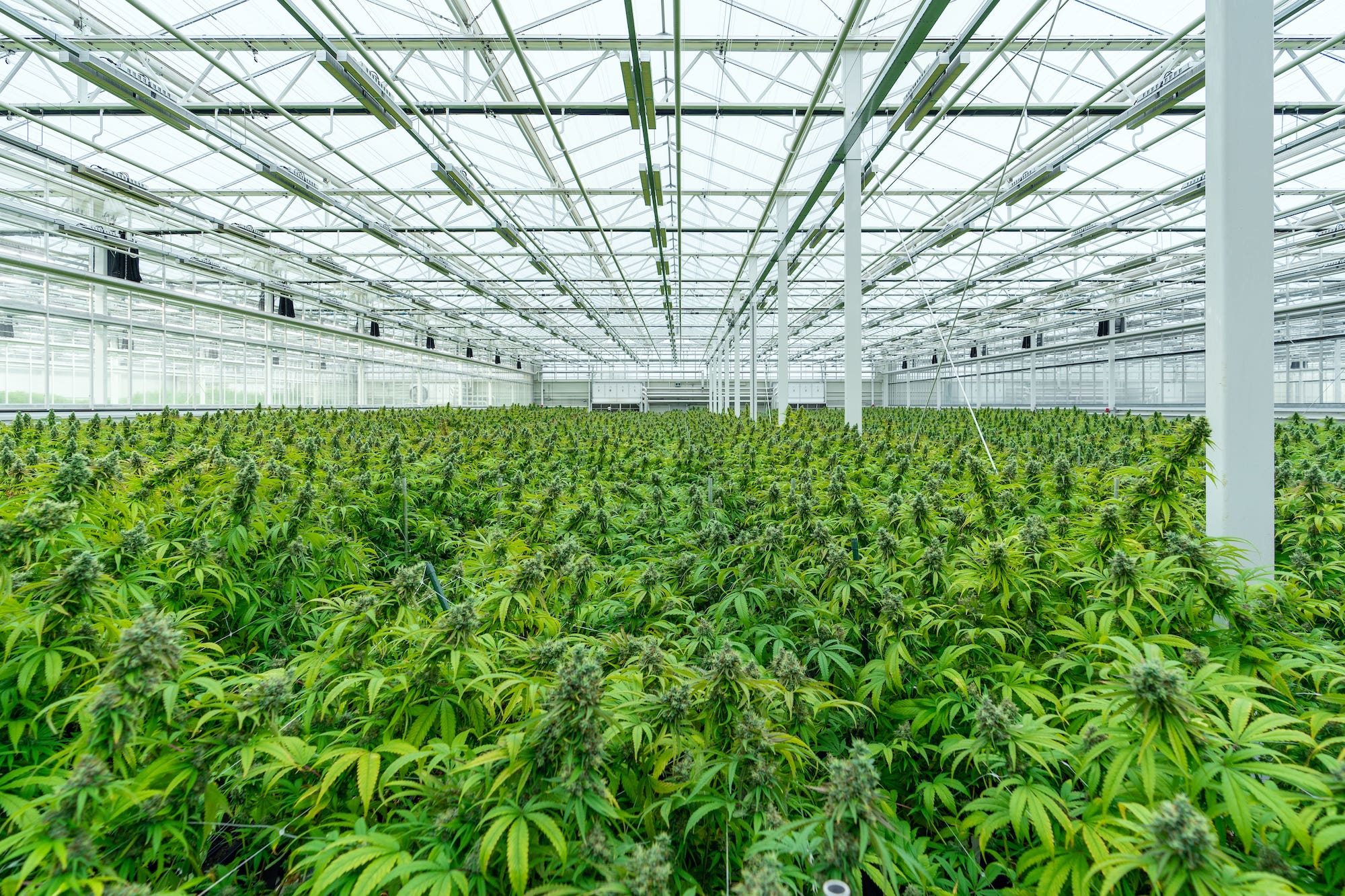Introduction
When cultivating cannabis, operators often have to decide between using general seed-to-sale software or software specifically designed for cultivation. Terms like “seed-to-sale” and “track-and-trace” are common in regulatory documents, which can lead to confusion among growers regarding what is required of them.
Some growers believe that seed-to-sale software is the only option for compliance with industry regulations. In reality, cannabis cultivation businesses can access additional features in cultivation software that will also report to the state on their behalf.
As the cannabis industry matures and businesses scale to multiple facilities and states, seed-to-sale is less apt to meet the complex needs of large-scale organizations. Whether the cultivation operation is large or small, cannabis operators must consider cannabis software platforms for managing regulatory compliance, production planning, crop steering, and business intelligence.
What is cannabis seed-to-sale tracking software?
Seed-to-sale tracking software helps cannabis businesses track their products from the beginning of their lifecycle through harvest, manufacturing, and into cannabis retailers stores and consumers’ hands. It can help keep track of everything from how much product is on hand to where it is in the business process and supply chain. This type of cannabis software assists businesses in staying compliant with state regulations.
A seed to sale system allows regulators and businesses to trace products back to their origin during a cannabis product recall. State regulatory agencies maintain track-and-trace procedures to collect and track the data and perform real-time inventory management. Track-and-trace is sometimes used interchangeably with seed to sale.
Many states use an operational compliance software called Metrc. BioTrack is another standard marijuana software. Some growers manually report their cannabis compliance events into their state-mandated tracking system by uploading spreadsheets or entering them individually. They’re performing the bare minimum requirement to maintain good standing as a licensed cannabis business.
Cultivators benefit from tracking all their operational data points to improve their production yields and labor efficiencies. However, those interests are not regulators’ concerns; they must identify the cannabis material and product tracking history to ensure cannabis operators comply with state laws.
Some familiar cannabis software companies that cover traceability reporting across the complete supply chain are MJ Platform, Leaflogix, and other cannabis ERPs. The data collected in cannabis seed-to-sale tracking systems include:
- Strain information
- Grower information
- Harvest information
- Packaging information
- Inventory data
- Cannabis sales information
- Customer relationship management
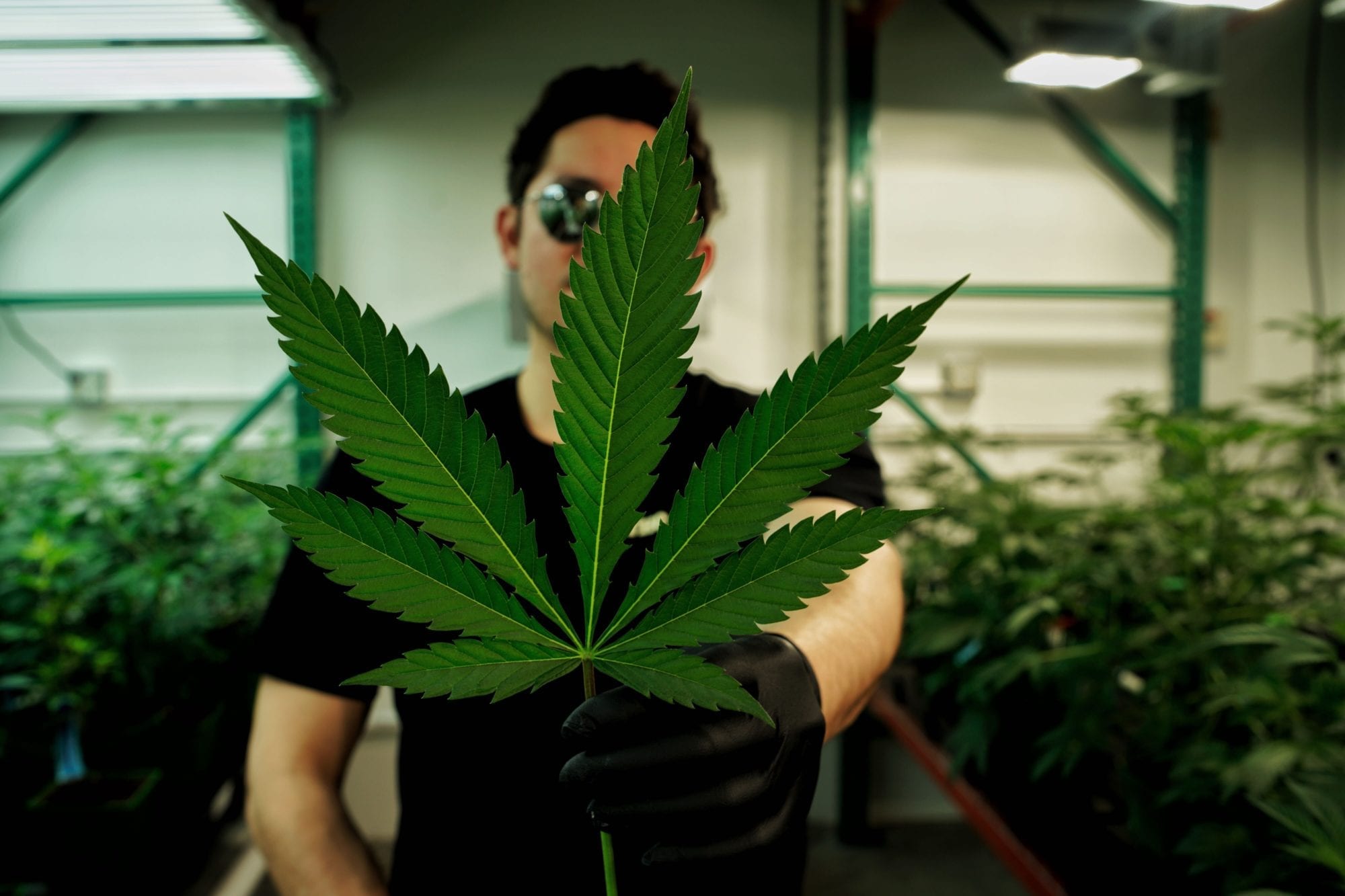
How does cannabis seed-to-sale software work?
Seed to sale software tracks every step of the cultivation and harvesting process. This includes planting seeds or clones, the growth stages of plants, harvesting, waste recording, and package creation. Seed-to-sale tracking software also tracks cannabis sales data to help businesses with inventory management.
The tags on plants and packages are scanned and recorded in the marijuana software. Tags are applied to plants at an early stage. In some states, new tags are also applied at the flowering stage. Package tags are assigned once cannabis products have been processed from harvest and after consumer products have been produced and are ready to enter dispensary inventory.
Handheld barcode scanners are easy to operate and low cost. Manually scanning tags takes time, but it helps the team to audit their inventory and ensure the plants and packages in their facility are represented in their Metrc or Biotrack accounts. Some platforms can simplify business processes with tag scanning on any mobile device. Some facilities use RFID (radio frequency) tags because they can capture many tag data with one scan. However, in our experience, this method has potential inaccuracies, as discussed in our blog, Cannabis Barcode Scanning vs. RFID Scanning.
Who is the right fit for seed to sale software solutions?
Seed to sale software helps businesses manage inventory accuracy and ensures compliance with state regulations. Not every adult-use or medical marijuana business needs to use seed to sale tracking software. Still, it’s helpful for a cannabis company with a high frequency of reporting events and wants a simplified way to stay compliant with state regulations.
If you’re a cannabis cultivator looking for straightforward marijuana software to handle reporting, you should consider using seed to sale software. This type of tracking software is designed specifically for the marijuana industry and the traceability of materials and products, as state law requires.
The benefits of using seed to sale software
Seed to sale software provides a variety of benefits. One of the benefits of using this service is that it assists businesses in complying with state regulations and staying informed on cannabis laws. Seed to sale software provides a streamlined approach to tracking materials and products, eliminating the need for manual data entry or spreadsheet uploads into state-mandated tracking systems. This results in saved time and improved accuracy.
Seed-to-sale software assists businesses in inventory management and operational optimization. It also has the added functionality of providing forecasting and production planning. By anticipating demand, growers can adequately prepare their material stock for the upcoming harvest season. It can also help identify areas of improvement and increase efficiencies.
Critical features of seed to sale software
Numerous features make it an indispensable asset for cannabis businesses.
Comprehensive tracking and traceability
The main functionality monitors every step of cannabis production, including cultivation and distribution, through its tracking and tracing features. This involves overseeing the various stages of plant growth, harvesting, processing, packaging, and eventual sale to customers. This level of traceability enables businesses to ensure regulatory compliance and entire supply chain transparency, fostering consumer trust and customer relationships.
Integration with Metrc
Seed to sale software is designed to integrate state-mandated tracking systems like METRC, BioTrackTHC, or Leaf Data Systems. Accurate reporting of relevant data reduces non-compliance risk and enables businesses to stay current with regulatory changes.
Analytics Capabilities
Marijuana software has analytics capabilities, including harvest forecasting and inventory optimization. This helps growers anticipate demand, optimize production planning, and make data-driven decisions quickly and accurately.
Reporting Capabilities
Robust data analytics and reporting features provide businesses with helpful information regarding their operations, including cannabis sales trends, customer demographics, and product performance. Using this data can assist companies in making informed decisions to enhance efficiency, lower expenses, and improve product offerings.
Security and Compliance
Seed to sale software incorporates robust security protocols to safeguard confidential business information. Businesses can follow data protection and privacy regulations, ensuring they meet industry standards for compliance. The necessary measures include encryption, multi-factor authentication, and regular data backups.
Inventory control and waste management
Automated inventory management functions enable businesses to track real-time inventory, minimizing the chance of shortages or overstocking. It also assists in waste disposal management and documentation, ensuring compliance with regulations and reducing the risk of violations.
Scalability and customization
Cannabis businesses need to be able to adjust to changing needs as they continue to expand and develop. It must be adjustable and tailored according to the specific needs of a business. The tech should adapt and provide customized solutions for companies looking for product line expansion or market entry.
Types of Cannabis Software
There is a wide variety available in the market today. Depending on the type and size of your business, there are several different types of software that you can use to streamline operations, manage compliance, and increase efficiency. Here are some common types of cannabis software:
Cultivation
A specific product to meet the needs of cannabis cultivation operations. It provides growers with tools for tracking inventory, monitoring growth cycles, and streamlining operational processes. It also includes features for regulatory compliance, nutrient/water tracking, lighting schedules, crop steering, root zone monitoring, and team management.
Retail Management
This type of platform is designed to meet the needs of cannabis retailers. It provides tools for tracking inventory, managing customer relationships, and processing orders. It also includes features for regulatory compliance, loyalty programs, marketing campaigns, and integration with POS systems.
Manufacturing
This product assists cannabis producers in optimizing their operations. It provides tools for production planning, forecasting demand, inventory tracking, and quality control. It also includes features for regulatory compliance, supplier management, and product traceability.
License-Specific
Designed for specific cannabis businesses, including dispensaries, delivery services, and laboratories, it offers specialized tools. It provides features for regulatory compliance, customer management, order processing, product labeling/packaging, and integration with POS systems.
No matter what type of cannabis business you operate, there is a software solution that can help you manage operations more efficiently and streamline processes. Whether you need seed-to-sale or license-specific, the right product can help you maximize profits and reach your goals.
Why seed to sale software isn’t enough
While seed to sale software is an essential tool for any cannabis business, it leaves much to be desired for companies seeking to optimize their performance and production goals.
Seed to sale software was created to meet state and local requirements for the legal cannabis industry. While this type is commonly implemented to meet regulatory compliance, it does not provide the comprehensive software solution that serious cultivators need to manage their inventory and maintain its accuracy.
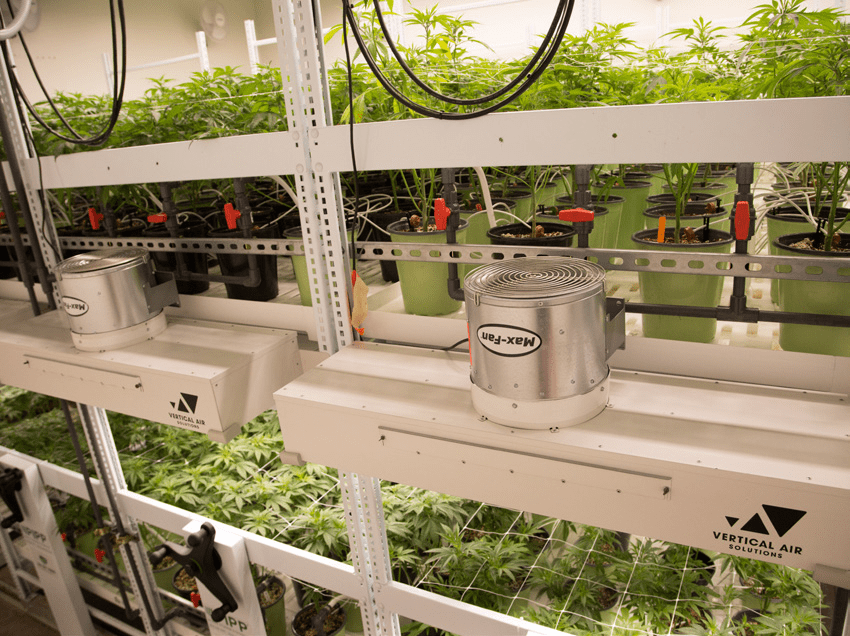
Cultivators Need More
Cultivators need tech that helps them grow better quality and higher yield crops, automate management to decrease labor costs and manage their entire complex operation from one centralized place. Some types of cannabis software are, unfortunately, not designed to perform all these functions.
Seed to sale software focuses on cannabis compliance and has its place in the marijuana industry. However, it is not enough for cultivators who want to manage their operations more efficiently and push for higher profit margins. Marijuana software, however, provides a complete solution that addresses cultivators’ needs.
As long as your tech can perform real-time inventory management and compliance reporting and fully integrates with the state’s chosen cannabis track-and-trace software, you won’t need to worry about compliance issues.
Level of Customer Support
General all-in-one software does not focus on a particular license type. Thus, customer support and onboarding aren’t specialized or experienced. Software must act as a streamlined cog in your operational machine. It must also run smoothly with minimal downtime and headaches. And it must address your business’s challenges and goals to improve and grow operations.
When your team needs to troubleshoot, instant, qualified support from your provider is extremely valuable. Large-scale organizations that routinely hire new employees and deal with turnover issues face challenges with training and bringing their team members in smoothly.
A technical partner who answers questions about optimizing processes is critical for cultivation teams. In addition, these vendors understand the local state law and compliance requirements, as they apply to cultivators, incredibly well. When clarification is needed, a cultivation business can turn to its tech partner versus hiring an expensive compliance specialist or consultant.
What is the best alternative to seed to sale software?
Cultivation software is designed specifically for growers and managing cannabis plant inventory. It includes all of the features that seed-to-sale products offer, plus additional features that support the specific needs of a cultivation operation. These extra features include grow room automation, nutrient and water tracking, lighting schedules, root zone monitoring, and advanced team management tools.
Marijuana software is often easier to use because it’s built with cultivation workflows and processes in mind. If you’re a cannabis cultivator, seed-to-sale software is not your only option. Get a more comprehensive solution for managing all aspects of a marijuana cultivation operation. Some features are:
- Regulatory compliance
- Plant tracking inventory
- Team Management
- Production planning
- Crop steering
- Business intelligence
It can also integrate with seed to sale software to provide a complete inventory tracking and business management solution for cultivators working down the industry supply chain in manufacturing or dispensary businesses. In addition, just like there’s a need for cultivation, several providers have developed license-specific products, a type of cannabis software for niche segments in the industry, like cannabis dispensaries. No matter what niche, cannabis operators benefit from software that supports their operational needs and those of their current and potential customers.
See Why Trym is the Leading Cultivation Tech
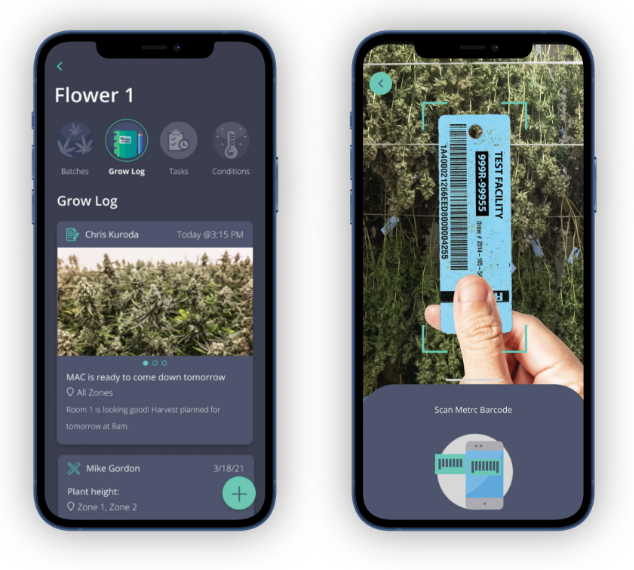
Trym’s built-in Metrc reporting ensures headache-free compliance for the entire cultivation team. Automated reporting is simple – just one click once a manager or supervisor reviews the day’s compliance events.
Trym eliminates manual reporting, which for larger organizations, can become unmanageable. In addition, team management features help automate the labor-intensive role of managing and organizing a team.
Trym was custom-built for growers with their operational challenges in mind. Our team of experts is ready to provide the specialized support you need to grow and maintain a profitable and successful cultivation business.
If you’d like to see how Trym can take your cannabis cultivation business to the next level, book a 15 min introductory call with us now.
Do You Need Seed to Sale Software if You’re Vertically Integrated?
As a vertically integrated business, you may think that all-in-one software checks off all the boxes and keeps costs down. The truth is that many vendors are competing for a piece of the industry, claiming to do it all. But your one generalized software solution may leave a lot off the table.
Instead, you can choose a custom-built specialized software solution for each cannabis operation and license type. The large amounts of customer data demand an intelligent tool that can provide analytics on customer data that you can use in decision-making. Layering several together, otherwise known as a software stack, will bring added value for a company looking to make the most of its data and human resources.
Conclusion
Seed to sale software is an essential tool for marijuana businesses. It helps track products from beginning to end and ensures accurate plant inventory and compliance with state regulations. However, tracking is not the only thing you need to be successful.
In an increasingly competitive industry, all businesses, be they cultivators, manufacturers, or cannabis business owners, need to focus on improving efficiency and increasing profit margins with marijuana software. Cultivation software built to increase operational performance best suits businesses seeking to increase margins and future sustainability in the cannabis industry. A team who focuses on operational improvement and tracking business goals and objectives will position itself well to adapt to changes in the cannabis industry and maturing market.

